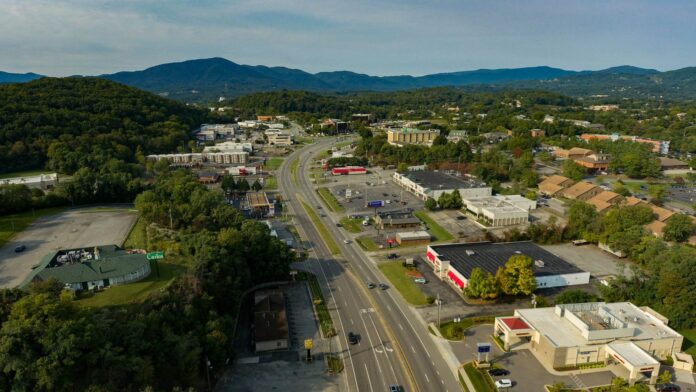When Roanoke County decided to form a five-year plan to strengthen its economy, it turned to Virginia Tech’s Office of Economic Development for assistance. The “Elevate Roanoke County 2026 Plan” is among the projects the office is supporting through the Economic Development Administration CARES Act funding.
“Communities such as Roanoke County work really hard to improve their economies and the well-being of their residents. But it can often be difficult to do that hard work day in and day out while also gathering the information and perspective needed to plan for the future,” Associate Director Scott Tate said. “We will help gather the data, survey business owners and community leaders, research best practices, and work with the county to craft a plan to guide its economic development efforts.”
Developing such a plan is essential to the work of economic development, said Jill Loope, director of Roanoke County Economic Development. “Changing demographics, consumer preferences, and the ability of many employees to work remotely present challenges and opportunities for economic development. This strategic planning effort will help guide the county’s actions and investments to yield future results.”
The county, which surrounds the independent cities of Roanoke and Salem, comprises about 250 square miles. It is home to more than 94,000 residents and includes Vinton, Hollins, and Bonsack.
Tate and research associate Ashley Posthumus are leading the Virginia Tech effort. They will work with a county steering team and seek public input from residents across the community and will also meet with business leaders, elected officials, and other stakeholders. Their final report is set to be released in November.
In addition to Roanoke County, the Office of Economic Development is using CARES Act funding for a variety of projects. They are working in the Hampton Roads region to explore the potential for technology-focused opportunities in the robotics sector. They are also conducting strategic planning for two regional economic development organizations in far Southwest Virginia — the Virginia Coalfields Economic Development Authority and Virginia Industrial Advancement Alliance.
The team also completed a project for Onward NRV, a regional economic development organization in the New River Valley. That project included surveys and outreach to companies in the manufacturing and information technology sectors to better understand the industry-specific impacts of the pandemic and to identify challenges and opportunities for local companies.
Engaging with communities such as Roanoke County and Hampton Roads is a critical part of Virginia Tech’s land-grant mission, said John Provo, director of the Office of Economic Development. “Our team of economic development specialists works with faculty experts from around the university and helps connect them with communities across the commonwealth.”
He said the office, part of Outreach and International Affairs, has worked on such projects with more than 200 clients at the national, state, and local levels. The work helped lead to the university’s certification as an economically engaged institution by the Association of Public and Land Grant Universities.
“We aim to make Virginia Tech the first and best stop for partners looking to define their pathways to prosperity, giving form to ideas and helping take ideas to action,” Provo said.
The Elevate Roanoke County project is just the latest in a long line of partnerships between the county and the university. Ten years ago, Roanoke County and Virginia Tech teamed up to develop the Catawba Sustainability Center into a laboratory supporting university research and community engagement. In December, Gov. Ralph Northam announced $20,000 in funding for a program at the center to help forest farmers produce and market medicinal herbs. He commended the center and the county for “identifying innovative ways” to support local landowners and farmers impacted by COVID-19 while creating sustainable industry growth.
– Julia Kell

